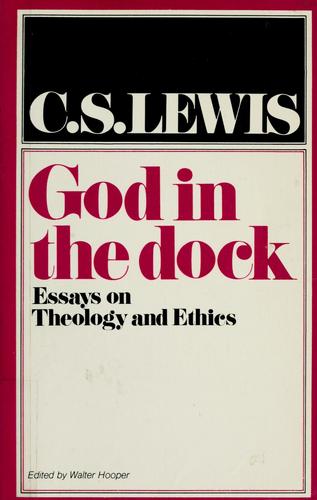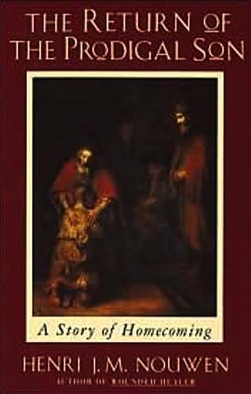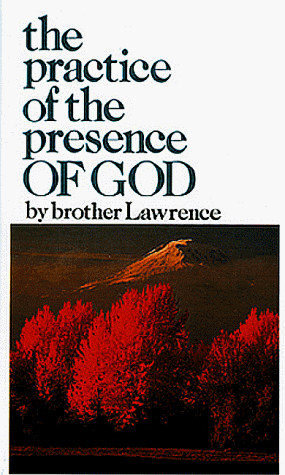 controversy,
controversy,  discipleship
discipleship  Thursday, February 16, 2012 at 12:43AM
Thursday, February 16, 2012 at 12:43AM  My daughter saves her deepest theological questions for bedtime. She doesn’t give a rip about theology, but she cares deeply about delaying bedtime. If Daddy is foolish enough to take the bait on Who made God-type questions, she wins. Ever though her greatest need is rest, she thinks her late-night allies are unsolvable religious questions. In the end, everyone ends up sleepy and confused.
My daughter saves her deepest theological questions for bedtime. She doesn’t give a rip about theology, but she cares deeply about delaying bedtime. If Daddy is foolish enough to take the bait on Who made God-type questions, she wins. Ever though her greatest need is rest, she thinks her late-night allies are unsolvable religious questions. In the end, everyone ends up sleepy and confused.
So it is with following Jesus. Let’s talk about theology; let’s talk about church; let’s crusade against the high-profile fools of Christendom and expose them for charlatans--in fact, let’s do anything other than take the yoke of discipleship. Like stupid trolls arguing all night long about how best to cook a hobbit, we will be surprised when the morning takes us all.
I’m just wondering: have you ever seen anyone win a religious argument? The only reason a crowd gathers is simply to watch a good fight, never mind who wins.
The Apostle Paul, that great intellect of the first generation church, was capable of winning nearly any argument but with each passing year he lost interest in being God’s cop gave himself more and more to being God’s herald. Consider this amazing trope from his letter to the Philippians:
Now I want you to know, brothers, that what has happened to me has really served to advance the gospel. As a result, it has become clear throughout the whole palace guard and to everyone else that I am in chains for Christ. Because of my chains, most of the brothers in the Lord have been encouraged to speak the word of God more courageously and fearlessly.
It is true that some preach Christ out of envy and rivalry, but others out of goodwill. The latter do so in love, knowing that I am put here for the defense of the gospel. The former preach Christ out of selfish ambition, not sincerely, supposing that they can stir up trouble for me while I am in chains. But what does it matter? The important thing is that in every way, whether from false motives or true, Christ is preached. And because of this I rejoice. ~ Philippians 1: 12-18
He actually rejoiced even as others tried to make his life more complicated! This passage is filled with marvels--and instruction--for every student of Jesus. Paul, thrown in prison because he declared the gospel, looks out from his house arrest in Rome to see and hear a wide variety of evangelists continuing his work. He knows that some are simply trying to pour gas on the fire of his persecution. These interlopers actually mean to do him harm, but Paul doesn’t care. He focuses on the gospel and delights that the message goes forth. Could you do that? Could you ignore your enemies and celebrate the sound of the Kingdom--even if it is sounded off-key?
If the Apostle Paul learned how to ignore the fools and focus on the image of Christ how much more should we? Just after giving these critics his blessing, Paul sings the hymn to the lowliness of his King, and the exaltation that is sure to follow. Paul demonstrates the value of devotion to the Lord, not devotion to the cause--and there is a difference. From his chains in Rome, Paul gives us at least four reasons he doesn't take the bait:
1). When we’re devoted to the cause we can forget the King. Paul stayed focused on Jesus and cared nothing for the hypocrisy of his critics. Paul valued the Lord’s opinion over the judgment of others.
2). When we’re devoted to the cause our agenda is determined by the opposition. In his day (and in ours) there are too many mistakes to correct--why let their errors define your message? Instead, Paul refused to allow the foolishness of others draw him in to foolish controversy. He preached Jesus the King.
3). When we’re focused on the cause we will embrace nearly any platform that gains attention, because we come to believe the ends justify the means. Paul rejoiced in his chains because he saw an obscure entry into the very palace guard of Rome.
4). When we’re focused on the cause we’re concerned with changing others--whether or not we have ever changed ourselves. Yet the master plan of of the Master Himself was to change us from the inside out.
Like my little girl trying to avoid the school-night bedtime, we avoid the greatest obstacle to the Kingdom’s progress: ourselves--our actions, our behavior, our pursuit of Christlikeness. With each passing year in ministry Paul trusted that Jesus was able to police the church. He traded in his badge and took up the servant’s towel. And strangely, the gospel of the Kingdom grew and spread--even without the benefit of the orthodoxy patrol.
 Monday, February 13, 2012 at 12:00AM
Monday, February 13, 2012 at 12:00AM  Following Jesus sets us up for hard work, right? Study, prayer, meditation, intentional action, and just hunker down to get serious with God. But wait--I thought Jesus said the yoke of discipleship would be easy. What about the light burden? You don’t always have to read N.T. Wright. Today, I’m up for a child-like grasp of the scripture. Sometimes simple is better. Consider this famous transformational passage:
Following Jesus sets us up for hard work, right? Study, prayer, meditation, intentional action, and just hunker down to get serious with God. But wait--I thought Jesus said the yoke of discipleship would be easy. What about the light burden? You don’t always have to read N.T. Wright. Today, I’m up for a child-like grasp of the scripture. Sometimes simple is better. Consider this famous transformational passage:
Therefore, I urge you, brothers, in view of God's mercy, to offer your bodies as living sacrifices, holy and pleasing to God--this is your spiritual act of worship. Do not conform any longer to the pattern of this world, but be transformed by the renewing of your mind. Then you will be able to test and approve what God's will is--his good, pleasing and perfect will. ~ Romans 12:1-2
I hereby declare this Lighten-Up Monday. Here are four invitations from this passage in Romans to enjoy his goodness by taking the easy yoke:
This passage from Romans 12 has launched untold hard-working disciples--and seen eager disciples fall short of their best intentions. But no less an authority than Dallas Willard suggests we can be happy Students of Jesus: “The idea ‘no pain, no gain,’ well . . . that’s just something a football coach thought up.”
There. You can sweat it out tomorrow. Today? Let the wind of the Spirit mess up your hair.
 Saturday, February 11, 2012 at 12:02AM
Saturday, February 11, 2012 at 12:02AM  If Jesus simply wanted to send a message he would not have used parables. A few moralisms would have done: “Follow the rules; live up to the standards you have been given; don’t drink, smoke or chew--and definitely don’t go with girls who do.” But that would have been merely adding to the religious burdens that already weigh us down.
If Jesus simply wanted to send a message he would not have used parables. A few moralisms would have done: “Follow the rules; live up to the standards you have been given; don’t drink, smoke or chew--and definitely don’t go with girls who do.” But that would have been merely adding to the religious burdens that already weigh us down.
Instead, he told stories. Lots of them. Stories he rarely explained and we have rarely understood. The Lord was trying to describe a place: the Kingdom of Heaven. Not “Heaven,” but rather that place characterized by the rule of the King. The kind of place can exist anywhere and anytime. We miss the good news if we insist on pushing the Kingdom all the way back to Heaven.
North American Evangelicals have bottled up his rule and reign and sealed the champaign until the end of the age. We also have a powerful urge to “explain” his stories in simple terms that reinforce our ideas of Heaven.
Just below is a “Pint-Sized Parable” for pint sized theology, producing pint sized believers. I love South Park-style animation as much as the next guy, and I have no objection with modernizing the language. I do, however, resist the attempts we make to limit His message. See what you think.
Why not investigate Matthew 18: 21-35 on your own? Listen to Peter's question and consider the Lord's answer. Do you think they were discussing a day yet to come, or were they exploring the merciless heart in our very own day?
 Thursday, February 9, 2012 at 12:02AM
Thursday, February 9, 2012 at 12:02AM  Writing is an exercise in faith. Either that, or vanity. Alone at a keyboard, the voice in my head is my own, and I imagine these pixels will light up some other screen God-knows-where. Writing requires an inflated sense of self-worth. The only act more vain is to write a post all about me. Today I want to share with you the writers who have shaped my life. These five books were not the result of "study." Each was life-changing encounter. Someday, at the marriage supper of the Lamb, I will ask for the privilege of pouring wine at the table of these men.
Writing is an exercise in faith. Either that, or vanity. Alone at a keyboard, the voice in my head is my own, and I imagine these pixels will light up some other screen God-knows-where. Writing requires an inflated sense of self-worth. The only act more vain is to write a post all about me. Today I want to share with you the writers who have shaped my life. These five books were not the result of "study." Each was life-changing encounter. Someday, at the marriage supper of the Lamb, I will ask for the privilege of pouring wine at the table of these men.

God in the Dock, C.S. Lewis—I had been a high-school evangelical for three years when someone handed me this collection of essays. They changed my life, and Lewis became my first teacher. If you have never read C.S. Lewis, you have missed one of God’s great gifts to the church in the last hundred years. God in the Dock is the most formative work in my life because it was the first to capture my heart and my mind. Thirty-plus years later, Lewis is my constant companion.
 The Divine Conspiracy, Dallas Willard—This book put into words the things I knew, but didn’t know that I knew. Willard is a Southern Baptist with a PhD in Philosophy who teaches at USC: that’s enough to stretch anyone’s idea of what it means to be a Christian. He cracks open our narrow ideas of “the gospel” and re-introduces Evangelicals to “the gospel of the Kingdom of God.” The Kingdom of God was the message of John the Baptist, Jesus, and the Apostle Paul. It should be the message of every student of Jesus but I daresay not one out of ten would define the gospel that way.
The Divine Conspiracy, Dallas Willard—This book put into words the things I knew, but didn’t know that I knew. Willard is a Southern Baptist with a PhD in Philosophy who teaches at USC: that’s enough to stretch anyone’s idea of what it means to be a Christian. He cracks open our narrow ideas of “the gospel” and re-introduces Evangelicals to “the gospel of the Kingdom of God.” The Kingdom of God was the message of John the Baptist, Jesus, and the Apostle Paul. It should be the message of every student of Jesus but I daresay not one out of ten would define the gospel that way.
The Return of the Prodigal Son, Henri Nouwen—This book taught me what it meant to reflect upon the scripture. Nouwen is an exegete of the soul. Return of the Prodigal was not the first of his books I read, but it moved me more than any other. It taught me by example how to meditate on the scriptures, and how to place myself into the Biblical narrative. When anyone asks me what it means to go deep in the scripture, I give them this book. Let me know if you want a copy.
The Practice of the Presence of God, Brother Lawrence—This little collection of letters and thoughts from a centuries-gone Carmelite brother is disarmingly--and dangerously--simple. Far from retreating from the world, Brother Lawrence opens the possibility of being with God every moment. His message is sacramental in the most universal sense. I discovered the secret of not just a daily life with Him, but life that is available moment-by-moment. The Creator of the universe is not far from any one of us: all we need to do is “turn.”
The Remains of the Day, Kazuo Ishiguro—The only work of fiction on this vain list. No amount of explaining will convey the impact this book had on me, but I would be dishonest if I left it off. Perhaps it would mean nothing to you, but it taught me that a life of selfless service is not enough. We are responsible for who and what we serve. This book gloriously wrecked my life. I wept for weeks after reading it, and everything I’ve done since 1994 is a result of it’s impact. You may read it and think, “that’s it?” But if I ever meet Mr. Ishiguro, I will bow before him!
Writing is an act of vanity, but it can also be a gift to generations unseen. I will be forever grateful for the gifts I have received. These writers have made me who I am. More than any others, they formed my life with God. I have had plenty more fellow-travelers. Francis Schaeffer, St. Augustine, Gerard Manley Hopkins, J.R.R. Tolkein, G.K. Chesterton, John Milton, Thomas a Kempis, A.W. Tozer, William Blake, and Ray Bradbury, but in a very real way, these five have changed my life.
May I include one final observation before we part? Years ago I taught a Spiritual Formation class at a nearby university. Our class read Willard’s Renovation of the Heart during the semester. One student, a junior in college, told me that he had never read an entire book, cover-to-cover, before in his life. How could this be? Perhaps it was just this one guy, but I cannot see how one can claim to be a follower of Jesus apart from drinking deep at the well of other believers, and that includes reading books. Not quantity. We should invite the Holy Spirit to be our tutor while we learn at the feet of past masters.
What are your life-changing books? Please let me know. I'll read your comments with great interest.
 Monday, February 6, 2012 at 12:02AM
Monday, February 6, 2012 at 12:02AM  One day I left my cell phone in a friend’s office. When my daughter sent a text message soon after, my friend thought it would be fun to respond to the text and pretend to be me. After an exchange of just two messages my daughter texted back, “Who is this really?”
One day I left my cell phone in a friend’s office. When my daughter sent a text message soon after, my friend thought it would be fun to respond to the text and pretend to be me. After an exchange of just two messages my daughter texted back, “Who is this really?”
She knew my voice. Even though she was apart from me and limited to the shorthand of text messaging, she was not fooled by an impostor.
One sure sign that we are becoming followers of Jesus is our ability to distinguish his voice from others. Jesus said simply, “My sheep know my voice.” Yet one hallmark among Christians in our day is anxiety regarding God’s direction and guidance. How can there be so many believers who struggle to hear his voice?
When our gospel does not require relationship or presence it should be no surprise that believers have trouble hearing their Lord’s voice. When our Christian experience is limited to learning the general principles of the Bible it should be no surprise that we have difficulty in knowing God’s specific will for our lives about the everyday questions: where should I go, and what should I do?
What if the loving Father wants to speak to our current situation and give us direction for this very day? If we have never been told that he longs to have a on-going, daily relationship with us, how could we know his voice?
The comforting answer lies in relationship with a living God. This, too, is part of the gospel. The same one who said "My sheep hear my voice" also promised us a spiritual guide who will lead us into all truth--everyday truth--his will for us day by day. The Spirit of Christ is his active presence in our lives, eager to cultivate a relationship, a friendship, a partnership for living (John 14: 16-29 is a good place to start). But because we have been warned that subjective experiences can lead us astray from the revealed truth of the Bible, many of us have been warned against listening for the still small voice of his presence. despite these well-meaning cautions, every student of Jesus can learn to recognize the voice of God as we grow in a vital, everyday relationship with him as Father and friend. We need not worry too much about failure because his desire for daily communion is stronger than whatever errors we might make as we learn to hear his voice.
Perhaps this week we can turn our meditation toward Jesus’ desire to deepen his relationship with us--to go beyond the new birth. This week we can discover that voice whispering, “Come to me and listen. I am still speaking today. Hear the sound of my voice, get to know my words, and discover my heart."